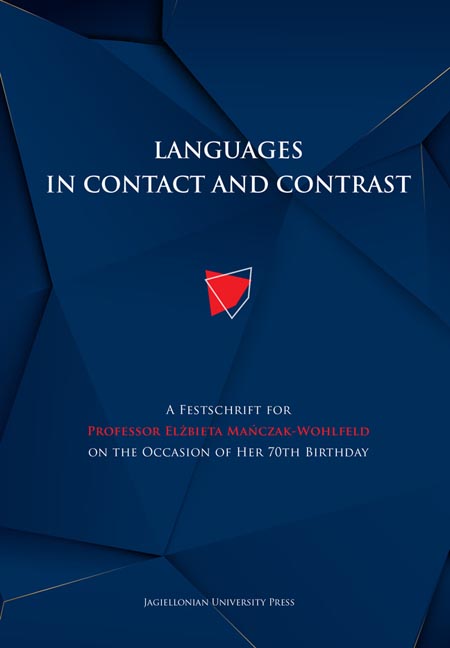 Languages in Contact and Contrast
Languages in Contact and Contrast Published online by Cambridge University Press: 14 October 2023
Introduction
Ponglish (in Polish: pongielski) has been emerging as an informal means of information exchange in the long-lasting language contact between members of the Polish Diaspora thriving in English-speaking countries and the autochthons speaking English. To outline the sociolinguistic nature of Ponglish, as I see it, based on a series of intensive field research projects I have been carrying out in the USA and the UK for almost two decades now, I will use a volcanological metonymy I coined a few years ago.
An outstandingly multicultural pot, set on Anglo-Saxon soil (any setting where vernaculars of English and their cultures dominate or intensively impact other minor ones), has been continuously boiling for centuries now the multilingual magma (the reservoir of Globish English) which later erupts from one of the “pot’s craters” (an exact geographical location where at least one, i.e., non-Anglo-Saxon, homogeneous national and/or ethnic group has already got involved in stable social ties with the locals speaking English as their first language) as palpable conversational lava (first a pidgin, then a creole) in close-encounter language contacts (all types of personal and/or social intercourses). Ponglish is one of those conversational lava tongues streaming down the sides of some “pot’s craters” or its outbursts spectacularly erupting from the same “pot’s craters” up in the air and glowing red above for a moment. In fact, it is not an easy task to explicitly define the sociolinguistic nature of Ponglish. However, it takes no effort to tell what sociolinguistic phenomena Ponglish should not be mistaken with. This paper sheds some light on Ponglish – an immanent ingredient of the Polish-speaking community living these times in English-speaking states, especially in the UK. Thus, my intention here is to give clear arguments what systematised means (sometimes mechanisms) of human communication Ponglish does not belong to.
At first, however, I owe the readers of this text one explanation. Never would any systematic, academic, and well-thought-through Ponglish research have taken place, not only in Poland but also elsewhere in the world, if Professor Elżbieta Mańczak-Wohlfeld had not had devoted a decent part of her outstandingly vast academic achievements to the areas of language contact and sociolinguistics, and especially to the topic of English borrowings in Polish.
To save this book to your Kindle, first ensure [email protected] is added to your Approved Personal Document E-mail List under your Personal Document Settings on the Manage Your Content and Devices page of your Amazon account. Then enter the ‘name’ part of your Kindle email address below. Find out more about saving to your Kindle.
Note you can select to save to either the @free.kindle.com or @kindle.com variations. ‘@free.kindle.com’ emails are free but can only be saved to your device when it is connected to wi-fi. ‘@kindle.com’ emails can be delivered even when you are not connected to wi-fi, but note that service fees apply.
Find out more about the Kindle Personal Document Service.
To save content items to your account, please confirm that you agree to abide by our usage policies. If this is the first time you use this feature, you will be asked to authorise Cambridge Core to connect with your account. Find out more about saving content to Dropbox.
To save content items to your account, please confirm that you agree to abide by our usage policies. If this is the first time you use this feature, you will be asked to authorise Cambridge Core to connect with your account. Find out more about saving content to Google Drive.